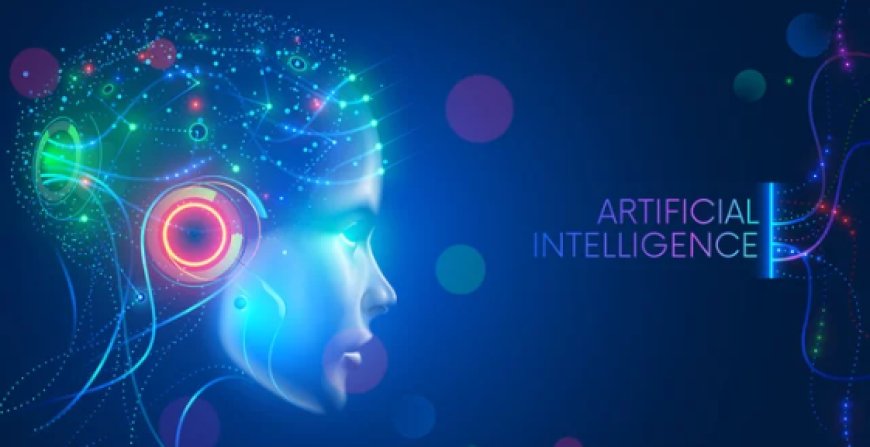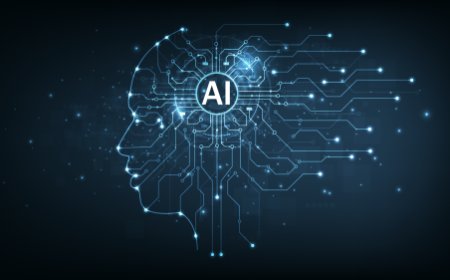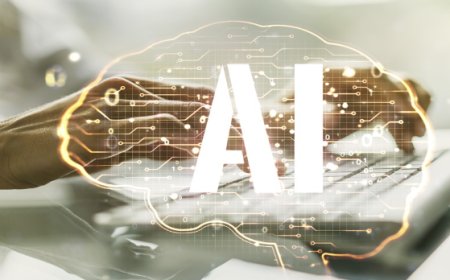Choosing an AI Certification: A Quick Guide
Explore the perfect AI certification for your career with our quick guide. Find top choices, and benefits, and make an informed decision to boost your expertise in artificial intelligence.

AI stands for Artificial Intelligence, which involves creating computer systems capable of carrying out tasks that usually need human intelligence. These tasks encompass learning, reasoning, problem-solving, perception, and language comprehension. Artificial Intelligence includes developing algorithms and models that empower machines to perform cognitive functions, enabling them to analyze data, make decisions, and enhance their performance without direct programming. AI is applied in different areas like natural language processing, computer vision, robotics, and machine learning to enhance automation and efficiency across various industries.
AI certification refers to the process of obtaining formal recognition or verification of one's proficiency and expertise in the field of Artificial Intelligence (AI). As AI continues to play a crucial role in various industries, individuals seek certification programs to demonstrate their knowledge and skills. These certifications are typically offered by reputable institutions, organizations, or platforms that specialize in AI education and training.
Types of AI certifications
AI certifications come in various shapes and sizes, catering to different skill levels and areas of expertise. Here's a brief overview of some common types:
-
Machine Learning Certifications: Machine Learning Engineers Focus on designing and implementing machine learning models. Deep Learning Specializes in advanced neural network architectures and techniques. and NLP in AI tries to Concentrate on understanding and processing human language by machines.
-
AI Programming Certifications: Python for AI Emphasize AI development using the Python programming language. TensorFlow Developer helps Proficiency in the TensorFlow machine learning framework. and PyTorch Developer that Skills related to the PyTorch deep learning framework.
-
Data Science and AI Certifications: Data Science and AI Broad coverage of data science and AI techniques. Data Scientist in AI Focus specifically on skills needed for a data science role.
-
AI Specializations: Computer Vision Enables machines to interpret and make decisions based on visual data. Speech Recognition It Develops systems that recognize and understand human speech. Specialize in training AI systems through reward-based learning.
-
AI and Ethics Certifications: AI Ethics addresses ethical considerations in AI development and deployment. Responsible AI focuses on ensuring the responsible and ethical use of AI technologies.
-
AI for Business Certifications: AI Strategy and Business Impact, Cover strategic implementation and business impact of AI. AI for executives, providing an understanding of AI's role in business.
choose certifications based on your career goals and interests, as well as the specific skills required in your desired AI domain. Certifications can serve as valuable credentials, showcasing your expertise in Artificial Intelligence.
Common mistakes and their consequences by individuals while choosing AI certification
When choosing an AI certification, individuals often make common mistakes that can impact the effectiveness of the certification and its relevance to their career goals. One frequent error is neglecting to assess the program's alignment with personal career objectives. It's essential to choose a certification that matches specific industry needs and areas of interest.
Ignoring Personal Goals and Objectives: Failing to align the AI certification with your career goals and aspirations. The chosen certification may not contribute significantly to your professional development and career advancement.
Overlooking Industry Relevance: Ignoring the specific needs and trends within your industry when selecting a certification. The acquired skills may not be directly applicable or valued in your professional context.
Neglecting Specialization: Opting for a generic AI certification without considering the value of specialization. Specialized skills are often in higher demand, and a lack of focus may limit the certification's impact on your career.
Not Researching Certification Providers: Choosing a certification without thoroughly researching the credibility and reputation of the provider. Poor-quality training materials, outdated content, or inadequate support may hinder the learning experience.
Disregarding Industry Recognition: Underestimating the importance of industry recognition and employer perception. Some certifications may not be widely recognized or valued by employers, affecting your job prospects.
Ignoring Prerequisites and Skill Levels: Enrolling in a certification program without assessing the prerequisites and required skill levels. If the program is too advanced or too basic, it may lead to frustration, inefficiency, and a suboptimal learning experience.
By being aware of these common mistakes, individuals can make more informed decisions when choosing an AI certification, ensuring that it aligns with their career goals, is relevant to their industry, and provides the specialized skills needed for success in the field.
What are the prerequisites and requirements for certification? What is the simple process when choosing an AI certification?
The specific prerequisites and requirements for AI certifications can vary depending on the certification provider and the nature of the program. However, here are five common factors that individuals should consider when pursuing AI certification. AI certifications typically come with specific prerequisites and requirements that individuals must meet to be eligible for the program. These criteria may include a foundational educational background in computer science or a related field, a minimum level of programming proficiency, such as familiarity with languages like Python, and a basic understanding of statistics and mathematics. Additionally, some certifications may require relevant work experience in the field of artificial intelligence or related domains. A common prerequisite is also a bachelor's or master's degree in a relevant discipline. Finally, candidates may need to pass a pre-assessment or entrance exam to demonstrate their knowledge and readiness for the certification program.
The simple process when choosing an AI certification
Choosing an AI certification involves a thoughtful process to ensure it aligns with your career goals and provides relevant skills. Here's a simple six-step guide
Define Your Goals: Clearly outline your career objectives and the specific areas of AI you want to specialize in. This will guide you in selecting a certification program that meets your needs.
Research Certifying Bodies: Investigate the credibility and reputation of the institutions or organizations offering the certification. Choose well-known and respected certifying bodies in the AI industry.
Check Curriculum Relevance: Review the curriculum to ensure it covers essential AI concepts and the latest industry trends. Look for programs that include practical projects to apply theoretical knowledge.
Assess Hands-On Opportunities: Check if the certification program provides hands-on experience and opportunities for practical application. Practical projects and practical scenarios are crucial for mastering AI skills.
Verify Industry Recognition: Ensure that the AI certification is recognized and valued by employers in the industry. Certifications from reputable organizations are more likely to be acknowledged and respected.
Consider Networking Opportunities: examine whether the certification program offers networking opportunities and community engagement. Connecting with peers and professionals in the AI field can be valuable for future collaboration and career advancement.
AI certifications require a strategic and informed approach. As artificial intelligence continues to shape various industries, obtaining a certification serves as a testament to an individual's proficiency and commitment to staying abreast of this quickly changing field. Begin by clearly defining your career goals and the specific areas of AI you wish to specialize in. Research certifying bodies to ensure they are reputable and well-regarded in the industry. Examine the curriculum to confirm its relevance and coverage of essential AI concepts, with a focus on practical application through hands-on projects. Verify the industry recognition of the certification and consider potential networking opportunities provided by the program. By following these steps, you can make an informed decision that aligns with your career aspirations and equips you with the skills and knowledge needed in the dynamic field of artificial intelligence.











































